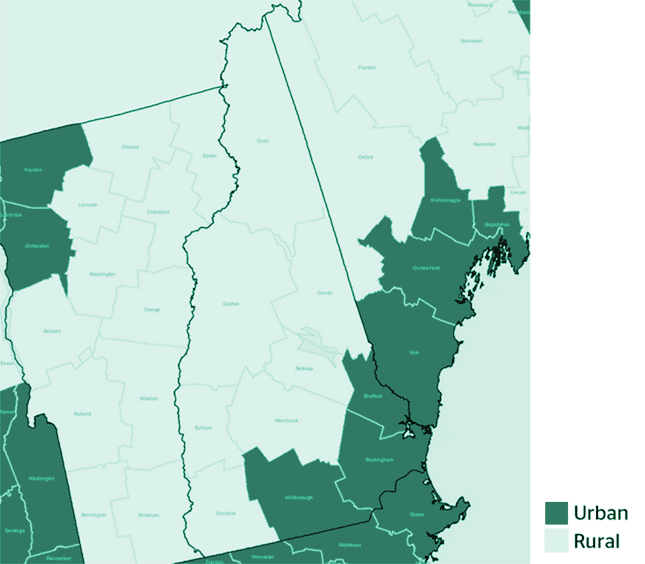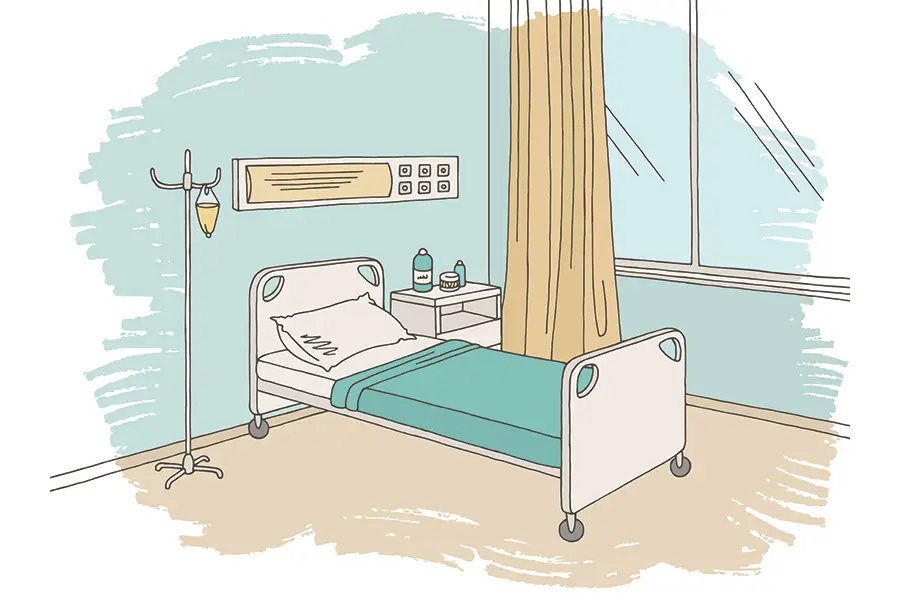Out of the Woods:
A Roadmap to Rescue Rural Healthcare
In New Hampshire, 84% of the landmass is considered rural, and these vast expanses of sparsely populated counties are home to nearly half of all Granite Staters. Such geographically dispersed communities pose a variety of complex public health challenges. As New Hampshire’s only academic health system and largest private employer, Dartmouth Health plays a crucial role in ensuring the stability and overall quality of life for people throughout the region, including the 40% of our patients who live in Vermont. We recognize the mission critical need for health equity and a roadmap to deliver care to the predominately rural communities we serve.
Steps in the Right Direction
In 2022, Dartmouth Health joined forces with regional community leaders to launch a Center for Advancing Rural Health Equity (CARHE). This system-level commitment consists of interdisciplinary teams and coalitions focused on urgent and long-term solutions for rural healthcare. By addressing long-standing rural health disparities, we hope to eliminate unjust variations in health outcomes, and create greater alignment of health delivery, education, research, and community. To advance rural health equity in northern New England, we must acquire new knowledge, new ways of collaborating, new skills, and renew outreach. With the hope that it may inform your approach to public health policy, we urge you to review the CARHE Strategic Framework 2022-2027 (PDF)
Last year, Dartmouth Health received a grant from the National Institutes of Health, as part of the Centers of Biomedical Research Excellence (COBRE) program. The grant, totaling $11,560,812 over five years, will fund a new Center for Rural Health Care Delivery Science and support faculty to conduct research that will advance the understanding of healthcare delivery in a rural setting.
What is health equity?
Health Equity exists when all people, regardless of race, sex, sexual orientation, disability, socio-economic status, geographic location, or other societal constructs have fair and just access, opportunity, and resources to achieve their highest potential for health.
Why are the social and political determinants of health as important as access to healthcare?
When it comes to health outcomes, your zip code should not matter as much as your genetic code. Health equity is a measure of overall physical, social, and mental health status. By focusing on public health equity, we make a positive impact in numerous ways including:
- Disease prevention
- Early detection, diagnosis, and
Treatment of illness - Quality of life
- Avoiding preventable deaths
- Life expectancy
Facts
AT-A-GLANCE:
Healthcare Roadblocks for Rural Residents
- Financial resources to pay for services.
- Means to reach and use services, such as transportation, ability to take paid time off work to use services.
- Confidence in their ability to communicate with healthcare providers, particularly if the patient is not fluent in English or has limited health literacy.
- Trust they can use services without compromising privacy.
- Confidence they will receive quality care.
- Healthcare workforce shortages.






